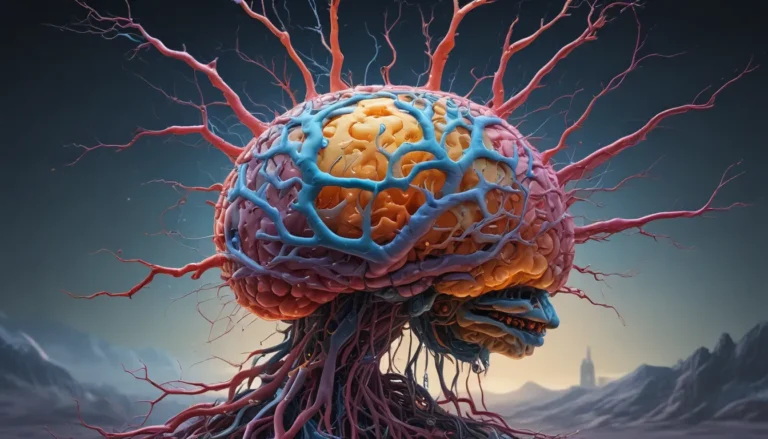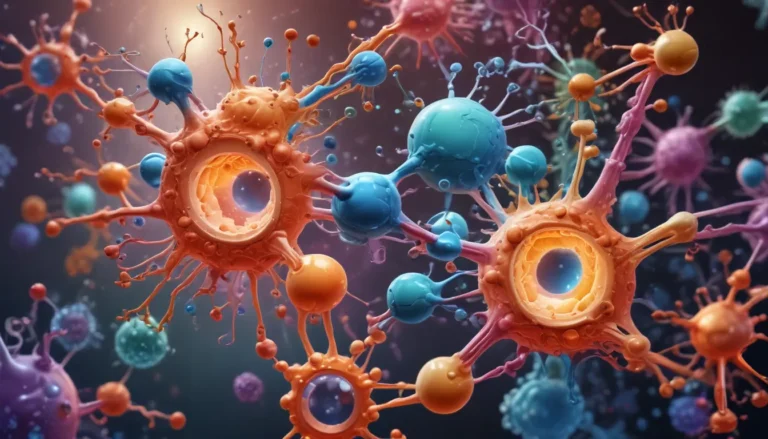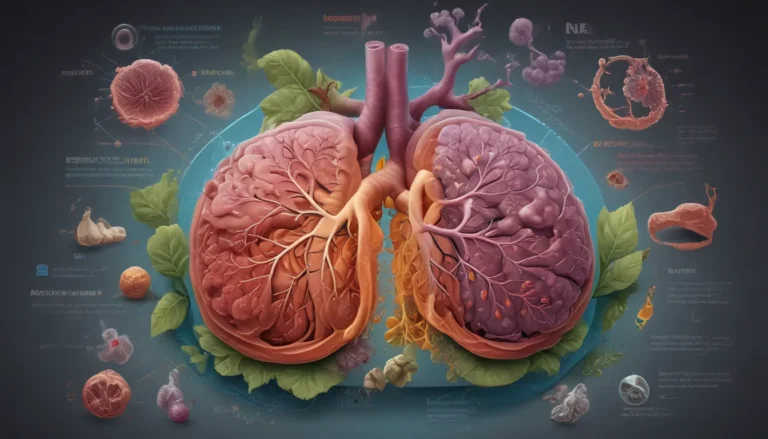A Note About Images: The images used in our articles are for illustration purposes only and may not exactly match the content. They are meant to engage readers, but the text should be relied upon for accurate information.
Autoimmune diseases are a captivating realm within the biological field, characterized by the immune system attacking the body’s own cells, tissues, and organs. These conditions manifest diverse symptoms and health complications, leaving many aspects shrouded in mystery. In this article, we will explore 14 intriguing facts about autoimmune diseases to shed light on their intricacies. From their impact on different body systems to the influence of genetics and environmental factors, these facts offer a deeper understanding of the complexity and challenges presented by autoimmune diseases. Join us on a journey to unravel the enigmatic nature of these fascinating medical conditions.
Unveiling the Diversity of Autoimmune Diseases
- Autoimmune diseases are not limited to one specific area but can affect various parts of the body, including the skin, brain, joints, thyroid, and kidneys.
- Presently, there are over 80 different types of autoimmune diseases, ranging from well-known conditions like rheumatoid arthritis and lupus to lesser-known ones such as Hashimoto’s thyroiditis and vitiligo.
- Women are disproportionately impacted by autoimmune diseases, with studies indicating a higher susceptibility compared to men, possibly due to hormonal fluctuations and genetic factors.
The Complex Origins of Autoimmune Diseases
- The etiology of autoimmune diseases is multifactorial, involving a combination of genetic predisposition, environmental triggers like infections or chemical exposures, and immune system dysregulation.
- Due to overlapping symptoms among various autoimmune diseases, accurate diagnosis can be challenging, leading to delayed or misidentified cases that prolong inflammation.
- While some autoimmune diseases are chronic and necessitate ongoing management, others can enter periods of remission where symptoms subside, albeit not guaranteeing a permanent cure.
Diagnosis and Management of Autoimmune Diseases
- Blood tests serve as a common method for diagnosing autoimmune diseases by detecting specific antibodies or markers associated with these conditions, aiding in confirmation and treatment decisions.
- Lifestyle factors like stress, diet, and sleep patterns play a significant role in influencing autoimmune diseases, emphasizing the importance of stress management, balanced nutrition, regular exercise, and adequate rest.
- Environmental triggers such as toxins, pollutants, and viral infections can exacerbate or initiate autoimmune diseases in susceptible individuals, highlighting the need for prevention and management strategies.
Addressing Challenges and Treatment Approaches
- Individuals with autoimmune diseases often experience a co-occurrence of multiple conditions, suggesting a shared genetic and environmental background among different autoimmune disorders.
- Conditions like systemic lupus erythematosus can impact fertility and pregnancy, necessitating proper prenatal care and close monitoring for women with autoimmune conditions who wish to conceive.
- While there is no definitive cure for most autoimmune diseases, treatment focuses on symptom management, inflammation reduction, and prevention of further damage through medications, lifestyle adjustments, and specific therapies.
Emotional and Research Dimensions of Autoimmune Diseases
- The emotional toll of living with a chronic illness can lead to increased rates of anxiety, depression, and other mental health disorders among individuals with autoimmune diseases, underscoring the need for comprehensive care.
- Ongoing research by scientists and researchers seeks to unravel the underlying mechanisms, genetic factors, and potential treatments for autoimmune diseases, offering hope for enhanced management and quality of life for affected individuals.
Embracing Hope and Progress
In conclusion, autoimmune diseases continue to pose a captivating challenge for the scientific community. As we delve deeper into the intricacies of the immune system, more enigmatic facts about these conditions come to light. Despite the mysteries that surround autoimmune diseases, advancements in diagnosis and treatment provide hope for millions worldwide. By nurturing curiosity and dedication in exploring these conditions, we move closer to developing targeted therapeutics and eventually finding a cure. Let us remain committed to unraveling the complexities of autoimmune diseases and collaborating to enhance the lives of those impacted by these formidable conditions.
FAQs: Unraveling Common Inquiries
-
What are autoimmune diseases?
Autoimmune diseases entail the immune system mistakenly attacking healthy cells and tissues in the body, leading to various symptoms and system-wide impact. -
What causes autoimmune diseases?
The exact origins of autoimmune diseases involve a blend of genetic, environmental, and hormonal factors, with additional triggers like infections or medications influencing their development. -
Are autoimmune diseases hereditary?
There is a genetic component to autoimmune diseases, amplifying the risk for those with a family history, although other factors must align for the diseases to manifest. -
How are autoimmune diseases diagnosed?
Diagnosis often involves a combination of medical history, physical exams, laboratory tests, and imaging studies to navigate the diverse symptoms and mimicry found in autoimmune diseases. -
Can autoimmune diseases be cured?
Presently, there is no definitive cure for autoimmune diseases, yet a variety of treatment options focus on symptom management, inflammation reduction, and immune system modulation to enhance quality of life.
As we delve into the world of autoimmune diseases, we encounter a blend of challenges and hopeful breakthroughs. By exploring how communities rally around those affected by conditions like multiple sclerosis, we witness uplifting stories of support and resilience. To gain a broader perspective on autoimmune disorders’ impact, our dive into fascinating autoimmunity facts unveils the astonishing intricacies within our immune systems. Stay engaged and enlightened as we continue to navigate the enigmatic terrain of autoimmune diseases, fueled by a shared quest for understanding and healing.
Conclusion
Our dedication to providing accurate and engaging content remains steadfast at the core of our mission. Every fact on our platform is sourced from real users, enriching our collection with diverse insights and information. With meticulous editorial oversight, we ensure that the facts shared are not only captivating but also credible, upholding our commitment to quality and authenticity. Join us in this journey of exploration and discovery, as we uncover the wonders of autoimmune diseases and the resilience embodied by those who face these challenges.






